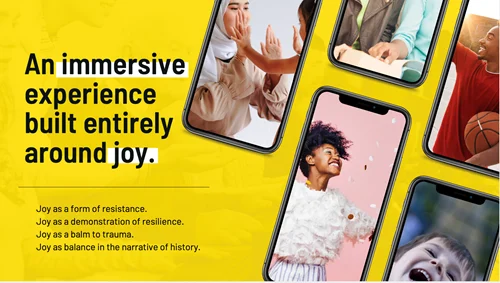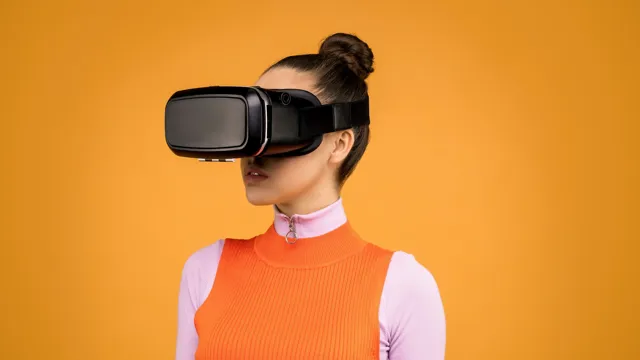
As an educator, I am passionately committed to the work of making schools more equitable, just, and culturally responsive. I was thrilled to be named one of the recipients of the 2021 NSHSS Diversity, Equity, and Inclusion in Teaching Grants, which provided me the opportunity to continue elevating DEIJ work in my role as PK-12 Chair of Equity and Instruction at The Blake School in Hopkins, Minnesota.
Engaging with various schools as a student, teacher, diversity practitioner, board member, and consultant has given me an appreciation for the intricacies, complexities, and experiences within contrastive school systems. As such, I strongly support culturally relevant pedagogy, which calls for centering the experiences and cultures of learners traditionally excluded from mainstream curriculums and school cultures. In any school system, the spirit of culturally relevant methodology is essential to the institution's core values and calls on administrators, faculty, and staff to recognize that the strengths that all families bring into a community should be leveraged to make a richer school environment and more effective learning experiences.
While inclusion is simply a quantitative statement of fact, belonging is the qualitative and subjective feeling of being valued as a powerful and essential community member. Creating that sense of belonging for all students in our schools and classrooms is fundamental to ensuring a higher degree of success for all students. Teaching is about weaving together rigor and relevance. In this multifaceted world, focusing on intersectionality and identity continues to be a core part of my DEIJ approach.
Real Results with Virtual Reality Project
Understanding the changing nature of education, I focus on using technology to enhance conversations around identity and representation. In an emerging space like this, the potential for growth and possibilities is limitless. High-quality content continues to be limited in newer learning tools such as augmented and virtual reality, which only recently have become widely available and financially viable for many schools. Seeing this void as an opportunity, I developed MY-SPACE, an interactive, in-headset diversity, equity, and inclusion (DEI) virtual reality (VR) experience. MY-SPACE uses 120-second 360º videos and reflection prompts to shed light on the questions, "How do the multiple identities that each of us holds—gender, race, class, religion, ability, age, family structure, language, etc.—impact how we view the world? How do these intersecting identities contribute to feelings of belonging or out-of-place-ness?"
This VR experience centers around intersectional identity development and self-exploration. As such, a user of this 360º video interactive VR experience will engage in the world as themselves, rather than taking on an alias persona. The experience consists of four 360º video vignettes, each showing a space created for and by individuals who hold multiple historically marginalized identities. Each MY-SPACE scenario will intentionally center joy, community, and belonging. A user might experience moments of cognitive dissonance as these spaces intentionally disrupt the norm or expectation of white-dominant culture. Depending on the real-life identities held by the user, these videos can spark various emotions, ranging from affirmation to discomfort.
Immediately following each MY-SPACE video vignette, the user is presented with two reflection questions. 1) Which identities were most salient for you during this MY-SPACE? [Select one or more from the identity wheel] 2) How did you feel during this MY-SPACE? [On a scale of out-of-place to belonging].
In the DEIJ field, extensive research supports the need for identity exploration and development of oneself and the lenses through which one sees the world. Preliminary research suggests VR can be an effective tool for building empathy, understanding another's experience, and inspiring a change in behavior and voting tendencies. "Being Homeless" simulates what it might be like to be homeless; "Project Empathy" is a video autobiography of incarceration; in "1000 Cut Journey," you move through the VR world as a Black man. These experiences allow viewers to step into someone else's shoes and, hopefully, glean a fraction of an understanding of what it might be like to have that lived experience. While these VR experiences are incredibly powerful and important, they also all center on trauma narratives and are very clearly designed for people with a greater degree of privilege in that identity to better understand the life of someone with less privilege.
The concept of MY-SPACE aims to build on this existing research while offering a new lens of joy and resilience. So often, individuals who hold historically marginalized identities must adapt to being in a world that was not created with them in mind. MY-SPACE flips the script, envisioning a space designed intentionally by and for us, and provides an opportunity for us to see ourselves authentically represented in joyful settings in VR– a traditionally white-dominated space.
MY-SPACE is launching on a national platform this winter and will be made free and available to any educator who wishes to download and use it on their Oculus Quest headset. The work of identity development is salient and necessary for all of us– both individually and in community. As teachers, we can work together to elevate, share, and patron quality resources from people of color, reclaiming narratives and redefining US educational curriculum.
For more information on MY-SPACE, email lmcmanus@blakeschool.org
Author's Bio:
Lora McManus-Graham serves as the PK-12 Chair of Equity & Instruction at The Blake School in Minneapolis, Minnesota, and is an independent DEIJ consultant. As the product of two Los Angeles independent schools, she is deeply passionate about inspiring change from within. A former elementary and middle school teacher, Lora focuses specifically on actionable steps to reconcile school culture and create schools in which families and employees of color feel not only in the space but of the space—the critical difference between inclusion and belonging. Lora has an M.A. in Curriculum and Instruction & Education Administration from Cal State Channel Islands, where she authored Experiences of Discrimination and Microaggressions towards Women of Color in Independent School Headships.
MY-SPACE Contributor:
Allison McManus-Graham is an immersive storytelling specialist and creative. Combining her background in film production with emerging technology, Allison assists educational institutions, non-profit organizations, and corporations with incorporating and embracing the full potential of virtual and augmented reality into the workplace structure and lexicon. Allison is an M.S. candidate at Johns Hopkins University and holds an M.A. in Education: Instructional Technology from Cal State Channel Islands.
MY-SPACE Technical Team:
Amir Berenjian, Co-Founder of REM5 Virtual Reality Laboratory
Brandon McKinney, Virtual Reality Developer
J Jolton, Media Arts Instructor at The Blake School
